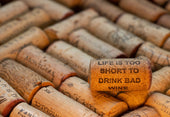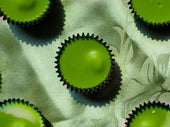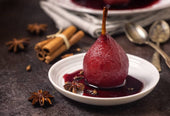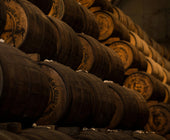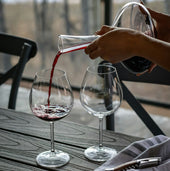
Wine Decanting Tips: When, Why, and How to Do It Right

There’s something undeniably elegant about pouring wine from a beautiful decanter. But decanting is about more than just presentation, it can dramatically enhance your wine-drinking experience. But why should you decant your wine? What's the proper way to decant your wine? We go over all of that and more below.
What Is Decanting?
So what exactly is decanting, and what does it do to my wine? In short, decanting is the process of transferring wine from its bottle into another vessel (a decanter) before drinking. This reason to decant your wine is to separate the wine from any sediment that may have formed and to aerate the wine, allowing it to "breathe."
Why Decant Wine?
To Remove Sediment Older red wines and some vintage ports can develop sediment as they age. This sediment is harmless but can taste bitter and feel gritty on the palate. Decanting allows you to pour the clear wine off the sediment, improving the texture and flavor.
To Aerate the Wine. Exposure to oxygen can soften harsh tannins and release aromatic compounds, opening up a wine’s bouquet and flavor profile. This is very helpful for young, bold red wines that may taste tight or closed when you pour it straight out of the bottle.
To Enhance Aromas and Flavors. Even some white wines and natural wines can benefit from a bit of air. Decanting can bring out subtleties that would otherwise remain hidden, giving you a more expressive and enjoyable glass of wine.
To Look Fancy. Let’s be honest, decanting just looks cool. It adds a bit of drama and flair to a dinner party or tasting event.
When Should You Decant Wine?
Not all wines need decanting, and in some cases, too much exposure to air can actually dull a wine. Here's a quick guide what you should and shouldn't decant.
Decant These Wines:
-
Young Red Wines (0-5 years): Especially those with high tannins like Cabernet Sauvignon, Syrah, Malbec, and Nebbiolo. Decanting can help soften their edges.
-
Older Red Wines (10+ years): To remove sediment and gently open the wine. Be careful not to overexpose.
-
Vintage Ports: Almost always need decanting to remove sediment.
-
Some White Wines: Fuller-bodied whites like white Burgundy or certain orange wines can benefit from decanting.
Skip Decanting These Wines:
-
Light Whites and Rosés: Typically fresh and ready to drink.
-
Very Old Wines (20+ years): These can be fragile. If decanting is necessary, do it just before serving.
-
Sparkling Wines: Decanting can strip them of their bubbles, which defeats the purpose!
How to Decant Wine
Step 1: Choose Your Decanter You don’t need anything fancy, even a clean glass pitcher will work. But if you want to look cool, consider a wide-based decanter for young wines and a narrower one for older, more delicate bottles.
Step 2: Let the Bottle Rest (If Needed) If the wine has been stored on its side, stand it upright for a few hours before decanting. This helps the sediment settle at the bottom.
Step 3: Open the Bottle and Inspect Use a corkscrew or ah-so to gently remove the cork. Sniff the wine and take a small sip to ensure it’s in good condition.
Step 4: Pour Slowly and Steadily Tilt the bottle and decanter so the wine flows smoothly. Use a light source (like a flashlight or candle) to watch for sediment as you pour. Stop when you see it reach the neck of the bottle.
Step 5: Let It Breathe Depending on the wine, let it sit for 15 minutes to an hour. Taste periodically to find the sweet spot.
Tips for Decanting
-
Timing: Young wines can handle more air and longer decanting times (30 minutes to 2 hours). Older wines may only need 15-30 minutes.
-
Double Decanting: For wines that need decanting but you want to serve in the original bottle, pour the wine into a decanter and then back into the bottle using a funnel.
-
No Decanter? No Problem! Swirl the wine in your glass or use a wine aerator as a quick fix.
What About "Instant" Aeration Gadgets?
Wine aerators and gadgets like the Coravin or Vinturi can speed up the process and are great for casual drinking. While they may not completely replace decanting for complex wines, they can mimic the benefits in a pinch.
Contributed by Ray Ibanez, E-Commerce Manager for Plume Ridge Bottle Shop.








